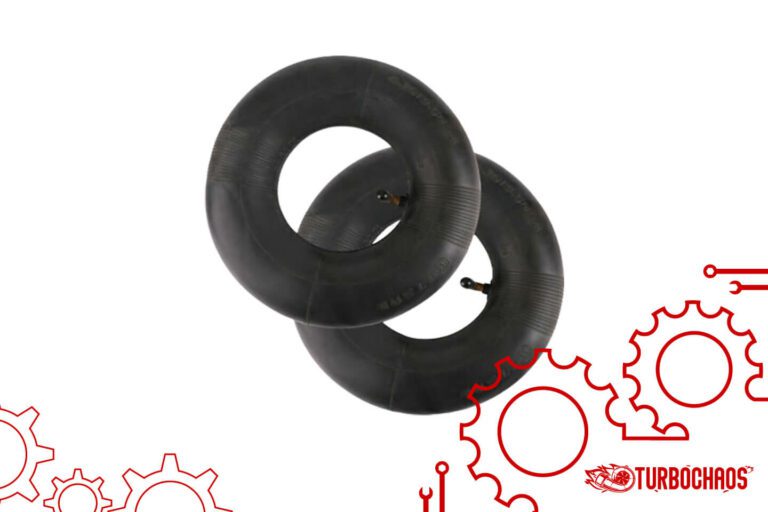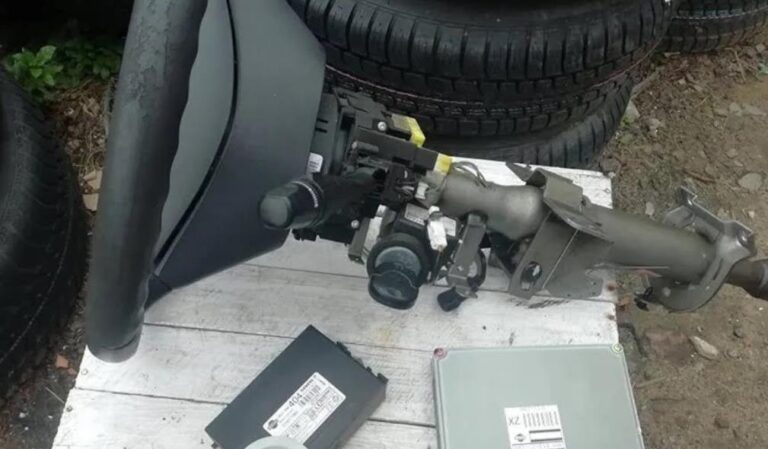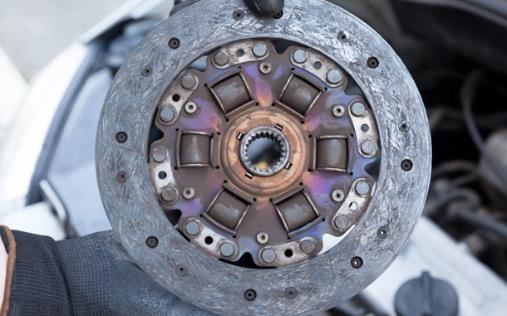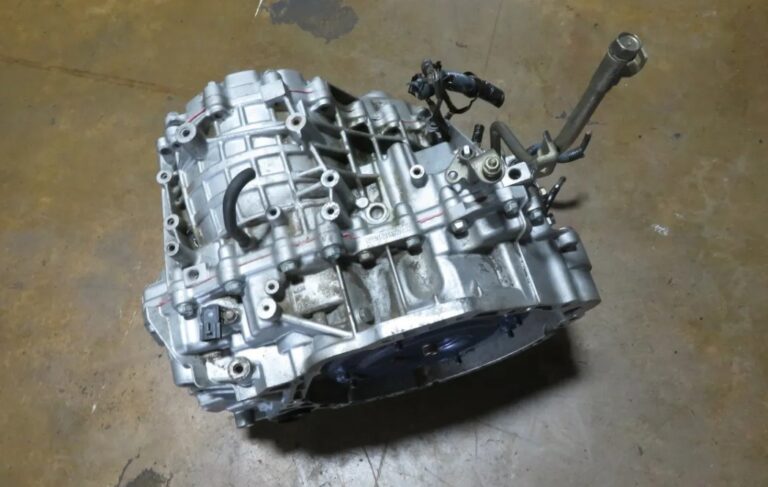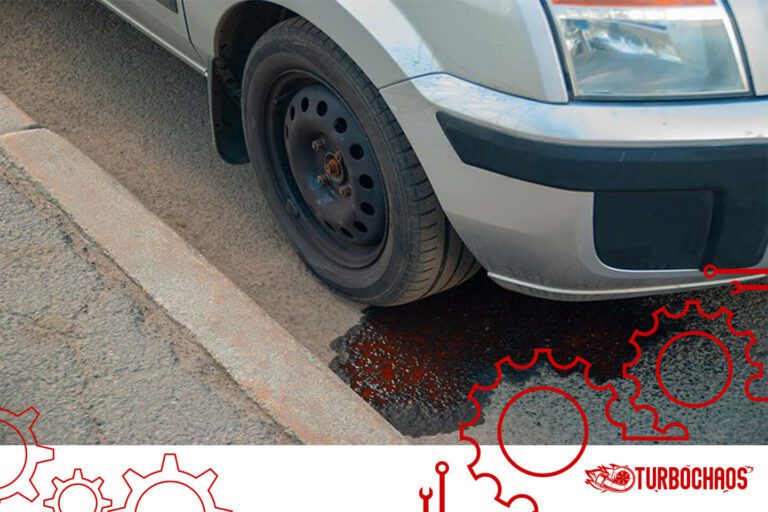BMW B48 Engine Problems [Causes And How To Fix It?]
This article will explain BMW B48 Engine Problems. Nearly ten years into the B48 construction cycle, the turbocharged inline-4 has performed as well as many had anticipated. The smaller inline-4 BMW B48 engine and the bigger inline-6 BMW B58 engine are built on the same engine platform, the BMW Modular B-Series engine platform.
The BMW B-Series engines are renowned for one thing in addition to their enormous capacity for power: dependability. This article will look closely at the most typical BMW B48 Engine Problems.
The BMW B48 follows this general pattern and experiences very few typical issues. BMW B48 engine issues are so uncommon that compiling a comprehensive list of them would be challenging.
While the B48 inline-4 has a few unique flaws, most of the B48’s typical issues touch other contemporary BMW engines and many older ones.
BMW B48 Engine Problems [Common Issues And Soultion]
The BMW B-Series engines for the company did turn a new page regarding turbocharged dependability. BMW has learned much from its earlier turbocharged production engines regarding dependability enhancements.
The BMW N54, N63, and even the BMW N20 that the B48 replaced were noted for having some rather major and potentially engine-killing issues, such as high-pressure fuel pump failures, wastegate rattles, and timing chain failures.

The B48 doesn’t have any significant problems in its lifespan. However, some drawbacks must be considered, particularly as the engines begin to wear out and collect miles.
Oil and coolant leaks are currently the B48’s Achilles heel, as they are with several other BMW engines.
Even though that is typical for a BMW engine, the B48 does have a few unique failure areas, like the oil filter housing itself cracking and the cylinder head ventilation line.
The most typical BMW B48 engine issues are listed below, and we’ll go into further detail on each of them.
Valve Cover Gasket Leaks
Any high-mileage BMW B-Series engine with a leaky valve cover gasket has been reported in the past, including the BMW B58 and several other BMW turbocharged engines.
Although this isn’t a problem with BWM B48 engines with low mileage, leaky valve cover gaskets will undoubtedly become one of the most prevalent B48 engine issues when they begin to accumulate more mileage.
The valve cover gasket on a BMW B48 is crucial because it secures the valve cover to the top of the cylinder head and stops oil leaks.
The valve cover gasket on the B48 deteriorates over time, causing oil to leak out of the compromised gasket.
On the BMW B48, there are primarily two causes for this. The rubber/polymer combination from which BMW manufactures its gaskets and continuous heat cycling makes for a gasket that will eventually fail.
However, valve cover gasket leaks are not specific to the B48. Valve cover gaskets are a rare service item because they are a wear-and-tear component that typically lasts between 70,000 and 100,000 miles.
BMW B48 Valve Cover Gasket Leak Symptoms
- A burning oil odor
- Valves cover the area of smoke
- Spark plugs with oil
- Engine oil low warning
The distinctive smell of burning oil is the most typical sign that the valve cover gasket on your B48 is about to fail.
The oil is burned off as it comes into contact with other hot engine components and drips out of the valve cover gasket.
The smoke produced in the engine bay should be rather obvious in some extreme circumstances where the oil leak is that bad.
If you observe some of the other linked symptoms, check your B48 valve cover gasket as that is another location to check.
Oil accumulation on the spark plugs is another obvious sign that your B48 valve cover gasket needs to be replaced. Although a B48 valve cover gasket oil leak needs to be fixed immediately, there won’t be any immediate drivability difficulties. An engine can lose much oil if addressed for a long time.
BMW B48 Valve Cover Gasket Fix
Like any gasket, the B48 valve cover gasket will eventually develop leaks. They typically survive between 70,000 and 100,000 miles, but occasionally they have been known to fail prematurely.
Although the fact that it is not a frequently used service item is good news, replacing one can be a costly process.
Ultimately, you should budget between $800 and $1,000 for parts and labor if you intend to take your B48 BMW to an authorized BMW repair facility or independent shop.
Most of the B48 valve cover gasket cost, which is only a $30 part, can be attributed to labor.
However, the fact that the item is so inexpensive is fantastic news for DIY enthusiasts. Changing a B48 valve cover gasket might be challenging for people without at least a basic understanding of technical issues.
The valve cover, ignition coils, injectors, and several electrical connections must be removed to replace the VCG.
That is obviously a greatly reduced version of the entire task, but if you want to see how it is completed, watch the video below.
The procedure for replacing a valve cover on a B58 is shown in the video, although it is similar to a B48.
Cylinder Head Ventilation Line Issues
This one affects many BMW B48 engines made in the US, but it is less of a widespread issue and more of a design flaw that BMW has acknowledged.
In fact, the problem has only just come to light; in February 2022, BMW issued a technical service notice describing problems with the cylinder head coolant vent line on the B48.
According to BMW’s technical service notice, the factory-installed plastic coolant ventilation line that connects the top of the cylinder head to the coolant expansion tank is prone to breaking at the cylinder head’s quick disconnect link, causing a rapid loss of coolant from the engine.
Because the original ventilation system was not built to handle the high engine temperatures, BMW attributes the problem to the BMW B48’s high operating temperature.
BMW has directed owners of F22, F23, F30, F31, F32, F33, F34, and F36 BMWs equipped with B48 engines to replace the item as soon as possible.
A licensed BMW repair shop will replace the cylinder head ventilation line on the B48 for free with a new, updated rubber part as part of a service operation.
A broken cylinder head ventilation line was later found to be the cause of numerous BMW B48 owners’ significant coolant leaks or suspected intermittent coolant leaks but was unable to locate the source.
This is one of the most prevalent B48 engine issues, according to the number of people experiencing it.
BMW B48 Broken Cylinder Head Ventilation Line Symptoms
- Rapid or sporadic coolant loss
- Engine Temperature High/Low Coolant Warning Light
- A buildup of coolant beneath the vehicle’s front end
Unfortunately, the cylinder head ventilation line fails abruptly and without warning for the vast majority of owners who have had this B48 engine issue.
This is a major issue because the engine quickly overheats from a lack of coolant as soon as the line breaks.
While some B48 owners claim the breakdown occurred while they were stopped at a red light, others claim it occurred while traveling on a highway. There needs to be more structure or logic behind it.
It is vital to bring your BMW to a licensed repair facility as soon as you can if your vehicle is included in the technical service bulletin and the cylinder head ventilation line still needs to be replaced.
B48 Broken Cylinder Head Ventilation Line Fix
Fortunately, the answer to this problem is simple and painless. To have the new rubber cylinder head ventilation line installed, all you need to do is bring your afflicted B48 BMW to an authorized BMW repair shop.
Given that the entire cooling system needs to be cleaned, the majority of BMW shops have estimated the repair to take 4-5 hours. Cost-wise, that is obviously not a problem because BMW is paying for the complete repair as a service operation.
Even though a BMW dealer can perform the repair for free, some B48 owners still perform the work. The replacement isn’t difficult since you only need to remove the engine’s acoustic cover, charge pipe, and throttle body bracket.
You ought to have access to the cylinder head side of the line once those have been taken out. Purging, replenishing, and bleeding the cooling system are the three most challenging steps in the repair.
The technique is explained in great detail in this forum thread. As a final point, a more recent component has been used to replace the updated B48 cylinder head ventilation line. The ventilation line’s most recent part number is 17129845173.
Water Pump Failure
Another issue that has plagued BMW engines for a while, affecting a variety of engine families and versions, is water pump failure.
Due to their design, the electric water pumps on the BMW N55 and the N20 predecessor to the B48 were renowned for breaking down at relatively short mileage.
While keeping an electrical pump for the turbo and engine-off cooling, the B48 reverted to a belt-driven pump to cool the engine.
Doing that reduces the time the electrical pump must operate throughout the car’s lifetime, thereby extending the pump’s life.
Even though that has largely been effective, a mechanical water pump failure on a B48 still happens frequently.
Since B48 water pumps are serviceable equipment with an average lifespan of 70,000–100,000 miles, they typically fail due to wear and tear.
That’s a lot longer than the electric water pumps in earlier engines had a lifespan. But there have also been tales of B48 water pumps breaking down at 60,000 miles.
Low engine coolant is another common reason for BMW B48 water pump failure. In addition to regulating engine temperature, coolant lubricates several parts of the B48’s cooling system, such as the internal gaskets in the water pump.
When coolant levels are too low, the pump doesn’t receive enough lubrication, which leads to internal gaskets burning up and wearing out prematurely.
Reliability And Longevity
You might be concerned about the BMW B48 engine’s dependability and longevity. The engine’s performance and economy are excellent for a contemporary 2.0L single-turbo engine.
However, it has several typical issues that might reduce its dependability and lifespan, just like any other engine.
The crankshaft counterbalance shaft bearing is one recognized problem with the B48 engine. Over time, this might become a problem and degrade the engine’s overall smoothness.
Coolant levels must be closely monitored to prevent overheating and potential engine damage. In addition, coolant leaks may happen under the intake or from the coolant pipe.
The high-pressure fuel pump is another element that needs to be monitored. Some drivers have reported hearing a knocking or ticking sound emanating from the pump, typically resulting from a malfunctioning part or inadequate lubrication.
Using premium fuel can lessen this problem and ensure your engine performs smoothly and effectively over time.
The B48 engine has a reputation for having issues with the cylinder head ventilation line and valve cover gasket leaks during its lifespan.
The engine’s lifespan can be significantly increased by keeping an eye on these problems and fixing them as they arise, giving you more worry-free miles on the road.
Keep an eye out for the typical issues outlined above, and plan routine maintenance for your BMW to ensure the dependability and lifespan of your B48 engine.
You can prolong the life of your engine and guarantee that it keeps working at its best by staying on top of these issues and utilizing high-quality fuel.
Conclusion
Comparing the B48 to the N20, a predecessor, is a significant step forward. This engine is quite dependable. It was the first inline-4 that BMW may have constructed properly. We suggest this engine to you.
The BMW B48 Engine Problems that you should be aware of is the bearing on the crankshaft counterbalance shaft. This issue may destroy the engine. Apart from that, this engine is in fine working order.
Frequently Asked Questions
How long will the B48 engine last?
Most BMW B48 engine internals ought to last more than 200,000 km. The timing chain, cylinder head, and other components are comparable. At 150,000 miles or more, routine maintenance and repairs may pile up quickly.
Is the b48m engine reliable?
The B48 engine is very dependable except for the failure of the counterbalance shaft bearing on some of these engines. Therefore, check to see if the engine you intend to purchase differs from the models with reliability difficulties.
Which engine is better B48 or N20?
Compared to the N20 engine, the B48 engine is unquestionably smoother because you might not notice any vibrations at idle. Compared to my N20, the B48 feels more refined, although it took a little longer for the turbo to spool up and the car to go.

Matt Rex brings 12 years of specialized automotive expertise, holding a professional degree in Automotive Engineering Technology. As the founder of Turbochaos, he delivers comprehensive diagnostic services, performance optimization, and fleet maintenance solutions, backed by advanced certifications in hybrid/electric systems and ADAS technology. Its innovative methodologies have earned industry recognition while maintaining a 98% customer satisfaction rate.

